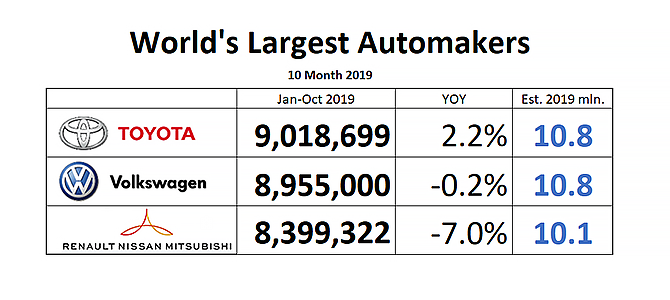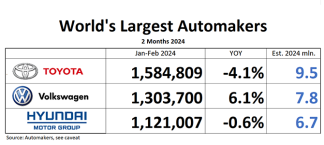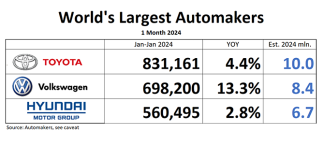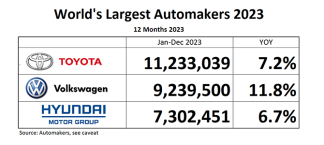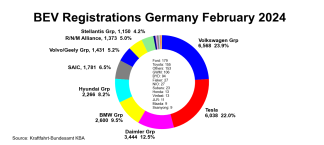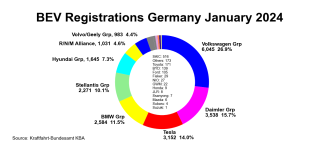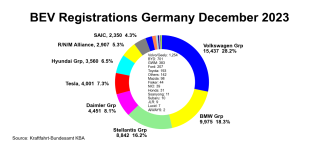With only two more rounds to go, the endurance race for World’s Largest Automaker 2019 finally is getting somewhat suspenseful. Sure, with Toyota in the lead, Volkswagen in pursuit, and a winded Renault-Nissan-Mitsubishi Alliance in the number 3 position, the field remains the same. However, Volkswagen made a mighty push in October, and with that, it made good a lot of distance. It even stands a narrow chance of getting on top.
In October, Volkswagen Group increased its deliveries by a massive 12.2% compared to the same month in the prior year. At home in Europe, Volkswagen grew deliveries by 25.5% – not because of an explosion of sales, but due to a collapse in deliveries in the prior year due to Volkswagen being short of cars compliant with the new WLTP regulations. Expect this effect to continue for a few more months. In its largest market China, the Volkswagen Group performed a miracle: 6.6% growth in a shrinking market. Overall, Volkswagen reduced its distance to the leading Toyota Group by around 30K units to 63K.
Volkswagen’s year-to-date deliveries still are a smidgen below last year, while Toyota is ahead by 2.2%. If Toyota keeps slowing down (in the month of October, Toyota’s group-wide production was down 4.6% compared to October 2018) and if Volkswagen keeps both feet on the accelerator, the Germans could beat out the Japanese in the home stretch.
The French/Japanese Alliance is only a shadow of its former glorious self. A year ago, the Alliance was the king of the heap, now it looks like a royal mess.
And now the necessary caveat:
The race for World’s Largest Automaker is not decided by sales, but by production, and this analysis attempts to track production, not sales, because this is how the world automaker umbrella organization OICA ranks automakers.
Due to the different methodologies of their measurement, “sales” numbers have proven to be unreliable, and are prone to ‘sales reporting abuses,” as recent scandals in the U.S., along with rampant “self-registrations” in the EU have shown.
At the same time, data reported by automakers are becoming increasingly hard to compare.
Toyota reports production and sales. Volkswagen reports “deliveries” to wholesale – which can be cars dumped on dealer lots, or actual sales to customers. The Alliance numbers used to be a blend of production data reported by Nissan and Mitsubishi, and deliveries reported by Renault. As of September 2018, Renault started to report sales only, forcing us to use those.
